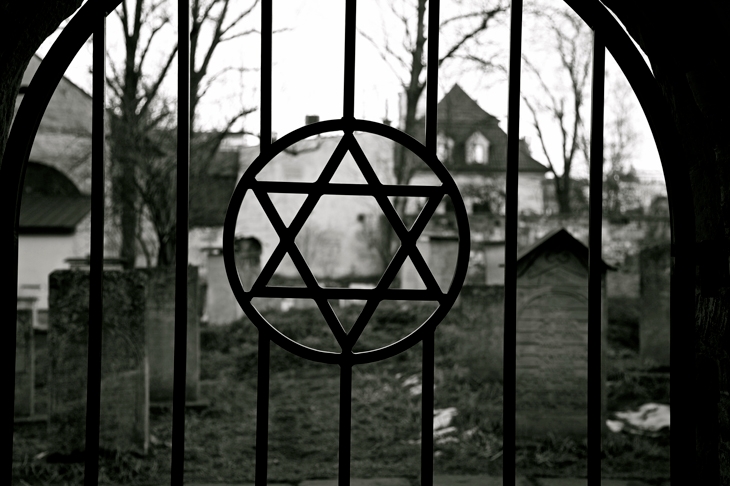There’s a moment in A Boy in Winter where a young Ukrainian policeman has to escort his town’s Jewish population to a churned-up field under the watchful eyes of his new Nazi masters. It’s November 1941 and Mykola has been told that all he has to do is relieve the Jews of their luggage and move them along. He assumes that they know what’s coming to them.
In his mind, the Germans are ‘bastards’ but no worse than his former Soviet occupiers, who burned his family’s fields and grain stores as they fled eastwards. So Mykola has deserted the Red Army and joined the auxiliary police under the Germans, the only way to make a living in the occupied town. As he watches ‘policemen with their coshes raised, and the Jews bent under them’, his instinct is not only anger at the situation but also impatience with the victims. ‘All the people here are ugly in their cowering and in their raging; he hates their fear most of all, and he wants only to get away from them.’
Rachel Seiffert’s speciality is human blind spots, how ordinary people are drawn, often incrementally, into humanity’s bleakest episodes. The British author — whose grandparents were Nazis — came to fame with The Dark Room, her 2001 Booker-nominated novel about the legacy of the Third Reich on German lives. Here, she turns to the largely neglected history of the Ukrainian holocaust — where an estimated one and a half million Jews were shot dead by the SS — and the complicity of the locals, which still remains a controversial topic.
The question of what it feels like to be in the wrong place at the wrong time is threaded throughout the interlocking stories of men, women and children in an agrarian backwater. Ephraim and Miryam, a Jewish merchant and his wife, are rounded up at daybreak by SS soldiers and held in one room of a small factory with their daughter and hundreds of fellow Jews. Their son Yankel flees in the night with his little brother Momik in tow. Seeking a place to hide, they encounter a farmgirl, Yasia, who is searching for Mykola, hoping he will return home to marry her. Meanwhile, Otto Pohl, a German engineer appalled by Hitler’s ‘over-reaching madness’, believes he has sidestepped the slaughter at the Front by coming to Ukraine to build a road for the Nazis. Instead, he finds himself in the midst of a greater atrocity.
Before she was a writer, Seiffert was a film editor — and it shows. The story hurtles along in vivid set pieces, gaining a frightening momentum once the Jews begin to speculate about their fate. In a cold factory, where he can see the breath of his fellow internees, Ephraim watches ‘the whispers as they pass from head to head around him; clouds of rumour passing from one group to the next’. It’s just a shame her focus on exterior action comes at the expense of the characters’ inner lives — often sketched.
However, the novel casts valuable light on one of the darkest chapters of the war. Seiffert understands that all too often we despise the victims of misfortune and loathe those whom we have wronged. In the interests of wanting to press on with our lives, we look the other way.






Comments